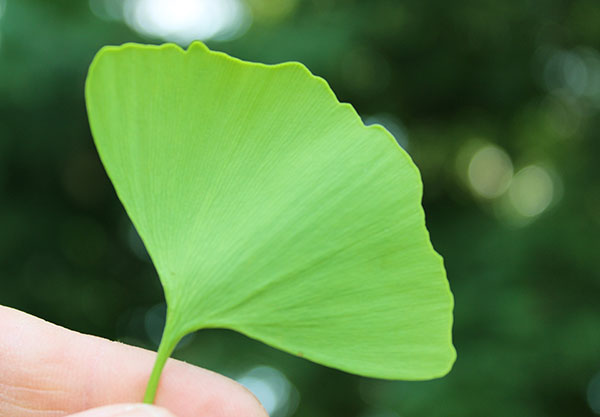Ginkgo biloba is an ancient tree species that has been used medicinally for thousands of years. It’s known for its potential ability to increase mental alertness and improve cognitive function. But is ginkgo biloba a stimulant? In this article, we’ll explore the properties of ginkgo biloba, and find out whether it can be classified as a stimulant.
Ginkgo Biloba is not a stimulant. It is an herb with many purported benefits, such as improving memory and cognitive function, treating anxiety and depression, and fighting inflammation. While ginkgo has some stimulant-like effects, it is not a true stimulant. Ginkgo is generally considered safe, but there are some potential side effects and interactions with medications.

What is Ginkgo Biloba?
Ginkgo Biloba, also known as the Maidenhair tree, is a species of tree native to China. It is one of the oldest living tree species and is known for its medicinal properties. Ginkgo Biloba is often used in traditional Chinese medicine and has been studied for its potential health benefits, including its ability to increase mental alertness and focus.
Ginkgo Biloba contains flavonoid and terpene molecules which are thought to be responsible for its beneficial effects on the brain. The leaves of the Ginkgo Biloba tree are used to make a tea or extract which is then consumed as a supplement to help improve cognitive functioning and increase mental clarity.
How Does Ginkgo Biloba Work?
Ginkgo Biloba is thought to work by increasing blood flow to the brain, which can help improve cognitive functioning. Studies have shown that Ginkgo Biloba can improve memory, focus, and concentration. Additionally, Ginkgo Biloba may help protect the brain from oxidative damage, which can lead to cognitive decline.
Ginkgo Biloba is also thought to have anti-inflammatory and antioxidant properties, which can help protect the brain from damage caused by free radicals. Additionally, Ginkgo Biloba may help improve mood and reduce stress and anxiety.
Is Ginkgo Biloba a Stimulant?
Ginkgo Biloba is not a stimulant, but it is believed to have stimulant-like effects. The active compounds in Ginkgo Biloba are thought to increase alertness and improve cognitive functioning, which can lead to increased energy and focus.
However, Ginkgo Biloba is not a stimulant in the traditional sense. Unlike other stimulants such as caffeine, Ginkgo Biloba does not directly stimulate the central nervous system. Instead, it is thought to work by improving circulation to the brain and increasing the production of neurotransmitters, which can lead to improved cognitive functioning.
Are There Any Side Effects?
Ginkgo Biloba is generally considered safe and is well tolerated. However, some people may experience side effects such as nausea, diarrhea, headaches, and dizziness. Additionally, Ginkgo Biloba may interact with certain medications, so it is important to talk to your doctor before taking Ginkgo Biloba.
Are There Any Potential Benefits?
Ginkgo Biloba is thought to have many potential health benefits, including improved cognitive functioning, increased alertness and focus, and protection from oxidative damage. Additionally, Ginkgo Biloba may help reduce stress and anxiety, and improve mood.
Conclusion
Ginkgo Biloba is a species of tree native to China that has been used in traditional Chinese medicine for centuries. The leaves of the tree are used to make a tea or extract which is then consumed as a supplement to help improve cognitive functioning and increase mental clarity. Ginkgo Biloba is not a stimulant, but it is believed to have stimulant-like effects. While Ginkgo Biloba is generally considered safe and is well tolerated, some people may experience side effects such as nausea, diarrhea, headaches, and dizziness. Additionally, Ginkgo Biloba may have many potential health benefits, including improved cognitive functioning, increased alertness and focus, and protection from oxidative damage.
Related Faq
What is Ginkgo Biloba?
Ginkgo biloba is a species of tree native to China. It is one of the oldest living species of tree, with a history dating back 270 million years. It is often used in traditional Chinese medicine and has many purported health benefits.
What are the Benefits of Ginkgo Biloba?
Ginkgo biloba has been used for centuries in traditional Chinese medicine for its purported health benefits. It is thought to improve circulation, increase mental alertness and focus, reduce inflammation, improve memory and cognitive function, and protect against age-related mental decline.
Is Ginkgo Biloba a Stimulant?
No, Ginkgo biloba is not a stimulant. It does not contain any stimulants or caffeine, so it will not give you an energy boost or increased alertness. Instead, it is thought to work by improving circulation, which may help to increase mental alertness and focus.
How is Ginkgo Biloba Taken?
Ginkgo biloba is typically taken in the form of an extract or supplement. The recommended dosage is 40-80 mg per day, taken in divided doses. It can also be taken as an herbal tea.
Are there any Side Effects of Ginkgo Biloba?
Ginkgo biloba is generally safe to take, but it can cause some side effects. These include nausea, vomiting, diarrhea, headaches, dizziness, and allergic reactions. It can also interact with certain medications, so it is important to speak to your doctor before taking it.
Who Should Avoid Taking Ginkgo Biloba?
Ginkgo biloba should not be taken by pregnant or breastfeeding women. It can also interact with certain medications, so it is important to speak to your doctor before taking it. If you have any existing health conditions, such as bleeding disorders or diabetes, it is also important to speak to your doctor before taking Ginkgo biloba.
What is Ginkgo Biloba? – The Benefits of Ginkgo Biloba – Dr.Berg
In conclusion, Ginkgo Biloba is not a stimulant. It is considered to be an herbal remedy that has many potential benefits, such as improving memory and concentration. However, it is important to note that its effects are not proven and should be discussed with your doctor before taking it. As with any herbal remedy, it is important to take Ginkgo Biloba with caution and in moderation.
